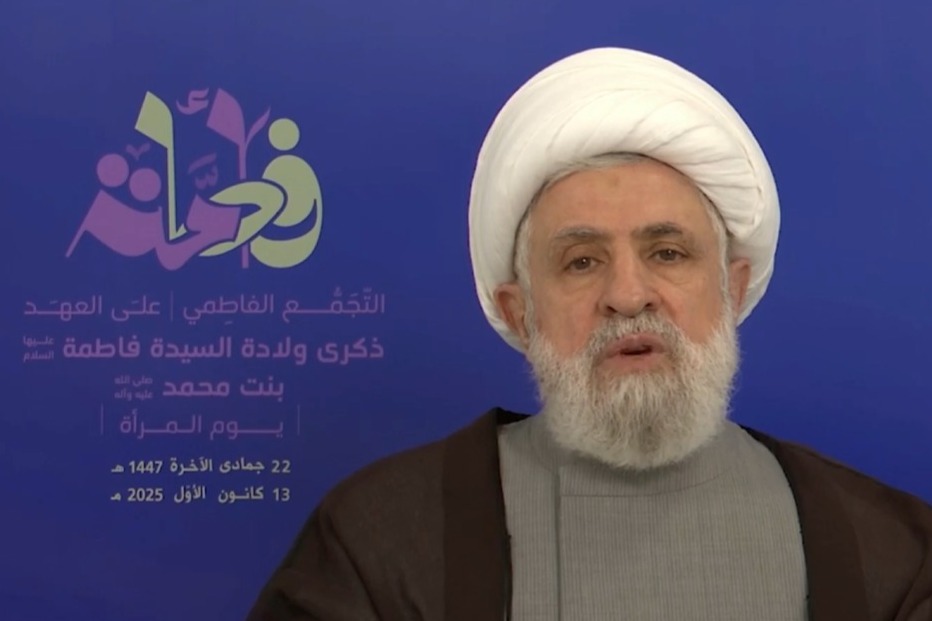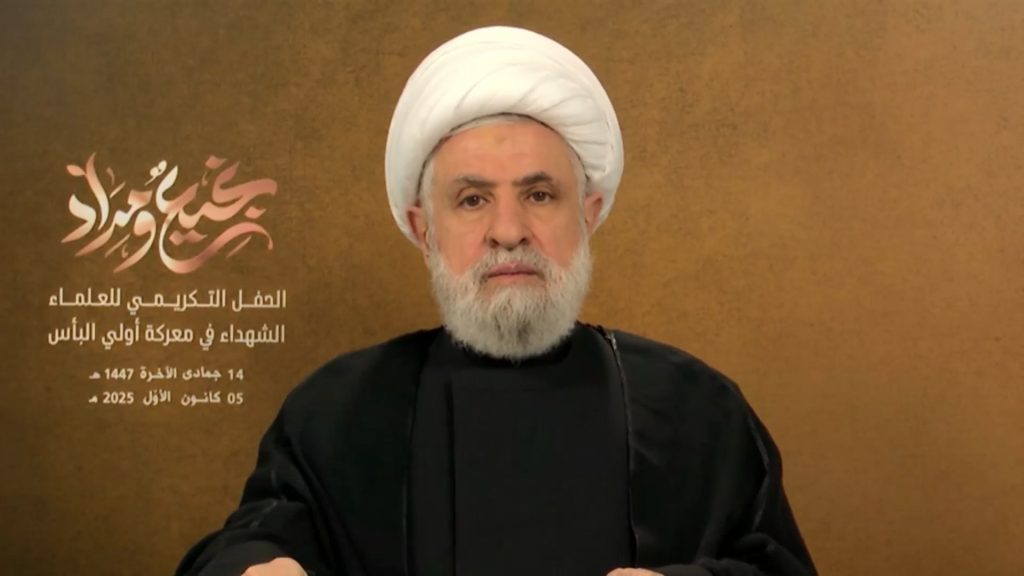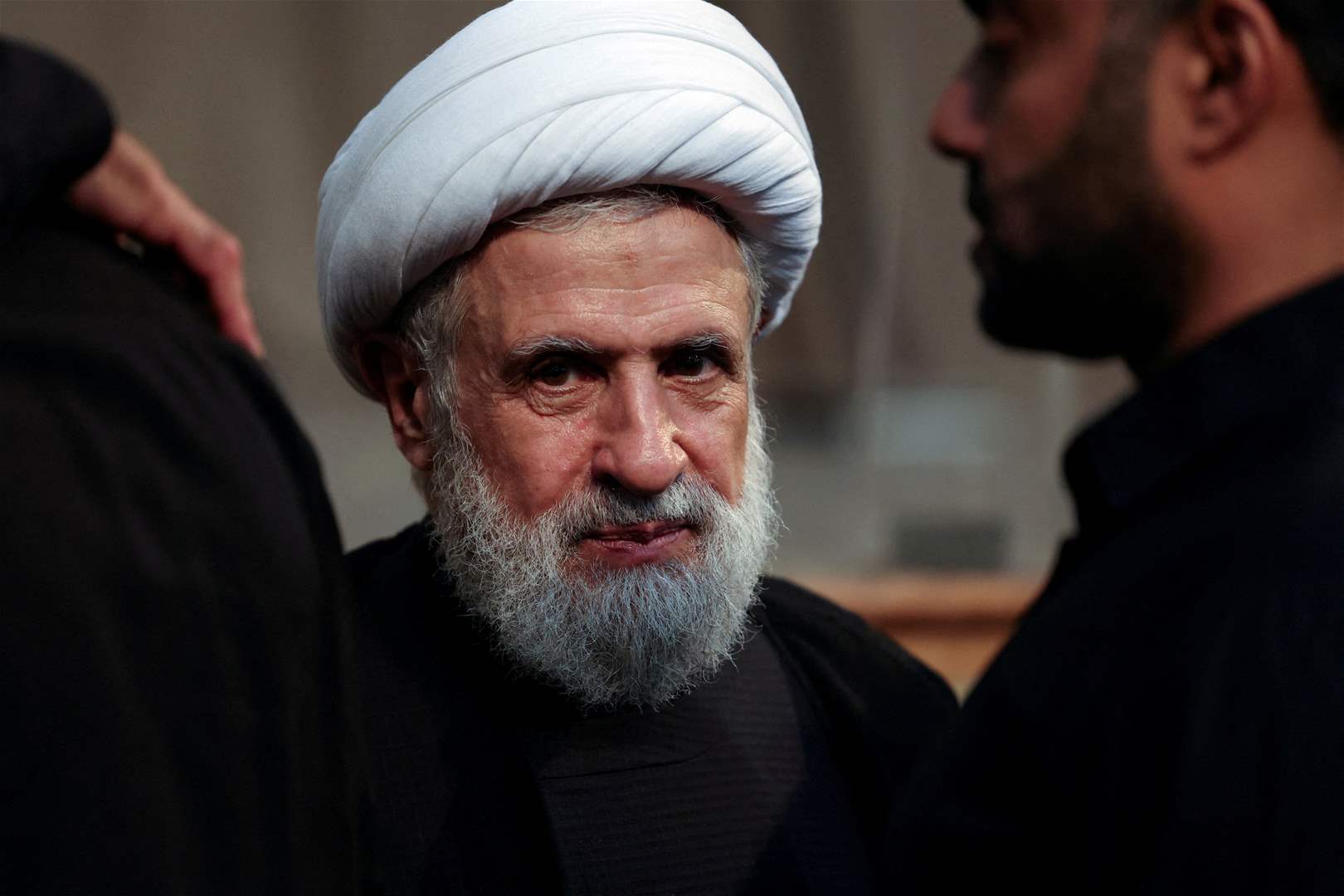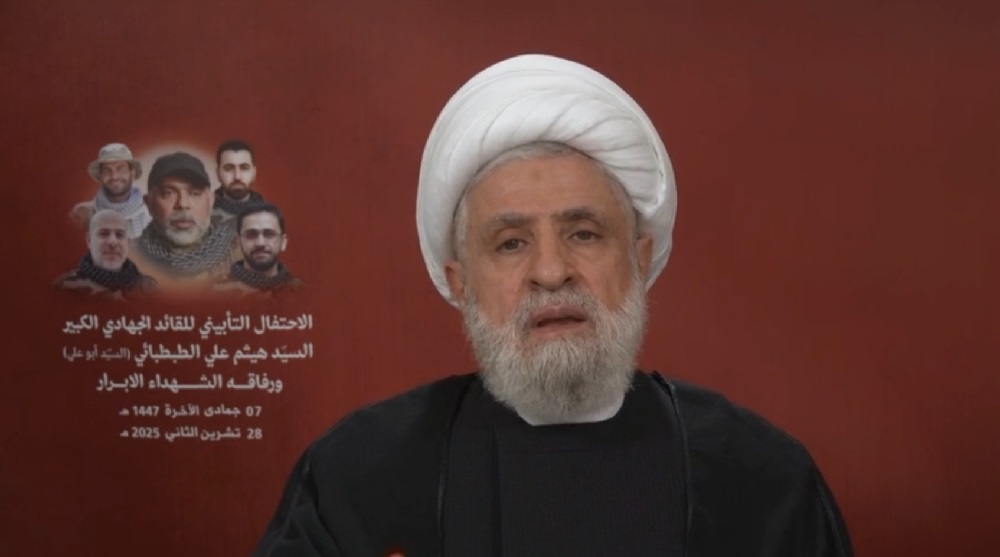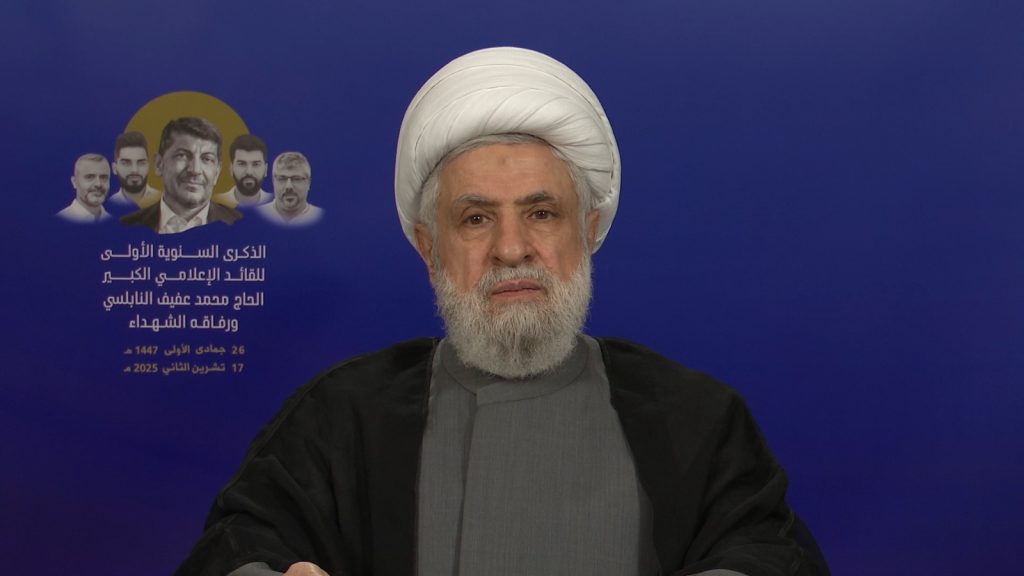Hizbullah's Future
Hizbullah's Future
Presence and Influence
As Hizbullah stepped into the scene of events through resistance activity, its verbal communications were initially geared towards the priority of military confrontation with Israel. In only a short while, Hizbullah succeeded at establishing a distinguished presence through atypical jihad operations at a time when political life was moribund in Lebanon given long years of civil strife. International attention and Israeli focus turned towards the growth of this resistance movement and to its declared and open emergence in early 1985. A deluge of accusations of >fundamentalism' and >terrorism' poured onto the Party, and the Western media as directed by intelligence bureaus repainted the Party's steadfast and combative character as an intolerable. A series of foreign and local declarations and analyses were broadcast referring to districts being controlled by Hizbullah and sealed from the outside world, where a new way of life, very different from the one the people were used to, was in practice; Hizbullah was also accused of a callousness that could not leave room for any sort of relationships, and a harshness demonstrated during confrontations with the Israeli army and its collaborators. Hizbullah's image was thus discernible only through military presence and activity, until it became evident to the majority of analysts as well as ordinary people that its presence was linked solely to resistance activity, not further, and that the Party was incapable of maintaining a presence without the fact of resistance. It was inherently assumed that Hizbullah would fall prey to any reconciliation in the region, and that the Party's existence was temporary, pertaining only to the exceptional phase of struggle with Israel.
The impression that Hizbullah was solely interested in resistance activity was also adopted by a good number of the Party's founding members, mainly on account of the circumstances surrounding its formation, the necessities of mobilization in the war against Israeli occupation and the Lebanese reality then prevalent. Substantial cultural, educational and practical effort was needed within circles of support in order to prepare for the Party's decision to take part in the 1992 parliamentary elections. General public outreach was required, as well as responses to recurring press questions and detailed clarifications regarding the initiation of contact or forging of relationships with various constituents and public figures.
The fieldwork undertaken within various communities and syndicates, as well as through election campaigns and Parliament served, together with Hizbullah's speeches and addresses, to gradually unveil the Party's wide-ranging views, its perceptions of politics, and its various interests. These attributes are typical of any local political party in any country, the distinction being Hizbullah's objectives and the particularity of resistance activity in Lebanon.
For Hizbullah is Islamic before being a resistance party, and its ideological commitment is what spurs it to refuse occupation and combat Israel. The Party follows a comprehensive life program, its duties not being limited to one charge over another B although jihad receives ultimate priority. Hizbullah's stature and social commitment was realized through strong belief in such a program, representing solutions for real issues. The Party achieved some of these solutions through occupational resistance B a successful experience marked by distinguished performance that rested on individual, group, social, political and military efforts, and that bore fruit through liberation on May 24, 2000, with an impact on the masses of supporters who continue to rally around Hizbullah's leadership.
On such a basis, the Party is no longer a concept presented for discussion, a program that needs to win conviction. It has now transformed into a reality entrenched at the core of national events. The Party's membership was not limited to jihad or military groups, but expanded into the social, political and cultural fabric of the general population. It did not stop at the limits of Hizbullah partisans, but became a widespread movement drawing men, women and children and transcending confessional or district boundaries. If continuity is a function of a well-designed theoretical framework and program, while the practical course is linked to popular outreach, then the existence of both of these assets to the Party should provide it with foundations for steadfast continuance. What, then, could hinder such progress after the Party has passed several vital tests, which many wagered to be the beginning of the end? Hizbullah has emerged stronger, and laid foundations for further presence and influence.
As for recurrent US and Israeli threats, these are only pressure tactics imposed on the Party and its supporters B elements of psychological warfare, which if successful would provide desired results without any resort to action. However, this type of warfare fails when waged against an organization grounded in ideological principles, one that knows well the nature of its objectives and the prices to be paid in their pursuit. Such threats translated on many an occasion into massive assaults, aggression that could very well recur. But this is only part of the confrontation process, although the methods employed do not guarantee results for the belligerent, which could fall prey to its own trap. Despite all the tools of aggression it employed, Israel was forced to withdraw from much of occupied Lebanon. No one expects the toll of any further aggression to be modest, and additional sacrifices must be made. However, the rewards of determination are worthier. Moreover, as US and Israeli policies are based on forcefully imposing the facts and conditions of occupation, we are left with but two alternatives: surrender versus confrontation.
Hizbullah has marked significant strides with respect to people's perceptions of the Party, and has enlarged its scope of regional and international relations. Significant change can be felt in terms of Western conduct vis-à-vis Hizbullah, this being a direct result of wise Party management, declarations and choices of relationships. However, one should not depend much on these indications or the extent of their permanence B despite their positive qualities underlining the Party's relative importance, and notwithstanding the contrast between the now-perceived reality and the tainted picture of Hizbullah propagated in its early beginnings.
Two Pressure Alternatives
As the offensive launched against Hizbullah is great, the question of the Party's continuity will impose itself. Where Israeli aggression fails to eliminate Hizbullah's existence, developments in the region may lead to circumstances that present either or both of the following situations:
1. The provocation of internal strife with the Lebanese army or with other local forces, which would call for political measures by the Lebanese government to eliminate the existence of the Party as a resistance movement. Such an occurrence would not be presented as a transient problem. Rather, in order for desired results to be secured, the issue would emerge as a political stance that gradually introduces sufficient reasons for strife and eventually leads to the desired conflict. It would be impossible for this process to succeed, for the political standpoints of the Lebanese army and of influential local forces are in complete harmony with and support of resistance. Political alliances within Lebanon have been woven based on the stance that each of the local forces has taken against Israel. Such circumstances granted resistance activity a priority in terms of adoption and significance.
Espousal of resistance as a priority is an issue closely linked to regional circumstances. The Syrian position, for instance, does not tolerate any events bearing the seeds of a clash with the resistance movement in Lebanon. Add to this the mode of conduct adopted by the resistance when dealing with internal issues, consideration for the local forces operating on Lebanese territory, and avoidance of any interference with state issues of security, and we come to understand the reasons for internal reassurance with respect Hizbullah. There is no sufficient reason for any local constituents to contemplate confrontation with Hizbullah, as discord does not fulfill the objectives of these constituents and only renders service to Lebanon's foes.
2. Exerting pressure exerted on Syria to abandonment its support of Hizbullah. Given that Syria is the constituent that provides the political cover and catalyst for Hizbullah's continuity, lifting such cover would expose the Party, isolate it, and render the resistance vulnerable when attacked.
Chances of this probability coming to pass are also weak, owing to various factors: the calmly and gradually growing strategic relationship between Syria and Hizbullah; the numerous common viewpoints on regional developments; the credibility accruing to Hizbullah since the first invasion and until liberation; the concrete bilateral need for maintaining mutual cooperation in the face of challenges; and the seriousness of Syria's position with respect to Israeli occupation.
However grave and complicated the circumstances, options remain open for cooperation between Syria and Hizbullah, where all obstacles and dangers can be transcended with a high level of understanding and with the least damage. Under President Hafez al-Assad, Syria alone bore the brunt of defending the rights of both Lebanon and Palestine to resist occupation and refused to equate resistance with terrorism. President Bashar al-Assad refused any tarnishing of the resistance and of its sound objectives, declaring his adherence to the options chosen by this movement without reservations. Such acts do not represent transient backing or even a mere declaration that rights need to be observed. Resistance has transformed into an integral part of permanent Syrian beliefs and politics, and this is sufficient assurance of continued support.
The Persistence of Resistance
The Resistance emerged as a reaction to Israeli occupation, which started in Palestine and stretched to other Arab regions. Therefore, as long as Israeli occupation continues to exist, resistance will persist, for resistance emanates from a fundamental belief in eliminating occupation and does not represent a temporary or haphazard condition. Since the repercussions of occupation have stretched to engulf the occupation of land, terrorizing of the region, displacement of the Palestinians, infringements on regional airspace and appropriation of the water resources of neighboring countries such as Lebanon, then defiance of such occupation must continue. It must do so according to various methods according to the nature and geography of circumstances, the aim being to deprive Israel of the opportunity to achieve its goals while making use of the regional and international political realities to the best extent possible.
Diplomats and journalists have frequently posed the question: What would become of Hizbullah if Lebanese land was completely liberated, and all captives and detainees were finally freed? Both Israel and the US look forward to an answer in order for their plans and programs to be drawn accordingly. Hizbullah insists on not providing an answer to this question, for the issues are intertwined, and developments bring forth much change and many surprises. To every future possibility there is a different detailed answer, and as possibilities are numerous, so is the number of possible answers to this question. When a reply of any sort serves to fulfill an Israeli need, then it is better left unsaid. It is useless for Hizbullah to bind itself to any a priori positions that would later be subject to inquisition. Add to this the complexities and interplay amongst various developments on the Palestinian, Syrian and Lebanese fronts, and Israel's possible actions in the region; then the need for preparedness becomes paramount over the provision of any untimely statements.
Further, it is neither possible to delineate a unique channel for resistance operations, nor to limit their margin of maneuver to pre-specified methods. It is wiser to keep all choices and possibilities open. Planning future results and drawing alternative plans for their achievement might only expose such plans to enemy eyes. It is best to beleaguer the enemy and cause it to worry over what surprises may be in store.
It is unprecedented for the Israeli occupiers to adhere to any specific future decision. The Israelis are known to keep all options open until the last moment, to benefit from maneuvering and juggling to the highest extent possible. The surface area and boundaries of Palestine are thus subject to negotiation, as is the nature of the Palestinian state. Similarly, the time needed to reach a conclusion to the Palestinian situation is directly linked to assurances with respect to Israeli security. Steps are taken one at a time, and the next step is determined only after complete achievement of the previous one. What, then, prompts us to conduct our planning any differently? Why should we not keep all of our options and avenues open?
Some pose the concern that such a train of thought by the Resistance is bound to trap Lebanon in a cycle of confrontation for a long period to come. These concerns are unfounded if measured against the core reasons for confrontation: aggression against Lebanon was initiated by Israel under the banner of assuring Israel's security, and has stretched over twenty-two years, during which Lebanon was lured time and again into a political accord that would provide the Israeli entity with its much-sought security guarantees. Occupational avarice did not cease with Israel's defeat and withdrawal in May 2000. Israel's lack of action in this regard is only a result of fear and concern about the level of preparedness or possible reactions of the Resistance. This situation only accentuates Lebanon's need to maintain this potential power for confronting possible dangers.
Furthermore, the repercussions of occupation are still felt by Lebanon in the form of the presence of refugees, continuous infringements on Lebanon's airspace and territorial waters, Israeli occupational presence in the Shebaa Farms, the retention of detainees in Israeli prisons, and continuous attempts to deny Lebanon the use of its own natural water resources. Irrespective of how Israel attempts, compulsively, to deal with some of these issues, it shall continue to represent a threat to Lebanon.
Lebanon and Palestine
Let us not forget our responsibility of supporting the Palestinian people, the association between the Palestinian cause and our own daily realities and how the Palestinian issue reflects on Lebanon and the entire region. This makes belief in liberation a unified, common cause. The manner of support is tied to many political and geographic factors.
The basic foundation for confronting imminent Israeli danger could be stated as follows: The Israeli entity represents a grave peril to Palestine and to the entire region, one that should be countered, confronted and resisted. All means should be employed in facing this hazard and every confrontational phase will be shaped by its needs and prevalent circumstances. The basis is to refuse the legitimacy of occupation and to adopt the persistence of resistance as a core pillar. There is no need to speak of any future steps. For every event there is discourse.
Does this mean that the Lebanese front will open for providing assistance to the Palestinian interior? This is a future question subject to the aforementioned treatment of future questions, the answer to which would only serve the purposes of Israel. No one can guarantee the extent of Israel's future aggression or the fronts that could open to battle or close, for this issue is not limited to a decision by the Resistance but is rather linked to a variety of regional developments that could open doors to all possibilities. Haste is unnecessary; the bottom line is to fortify and prepare for confrontation without falling prey to the intimidation of recurring menace, for such a menace is of a much lesser impact than the difficult and dangerous results of succumbing to Zionist pressures and demands.
Hizbullah believes in the duty of completely liberating all occupied Palestinian and other Arab lands, considering that the implantation of the Zionist entity in the region is illegitimate B a cancerous gland the existence of which is only a prelude to dominion over the entire region. The interests of the powers of hegemony and their support for this entity of extortion do not justify the subjugation of our entire region to the pre-planned occupational project. It is therefore not only a necessity but a legal, moral and human duty to do one's utmost for the sake of liberation. If the imposition of occupation should come by the power of armament and international support, then the defeat of the occupation should come through resistance and the pooling of all liberating forces in the region.
The road is not yet paved and results are not imminent, but hopes should remain high and efforts exerted for their fulfillment. All those pursuing the goal of liberation should seek cooperation, reinforcement and resistance of occupation.
Assuming that a reconciliation is achieved and new contours are drawn for Palestine and the region, Hizbullah would never sign in its favor, for such a settlement would only bind its adopters while leaving the state of Palestinian reality unchanged. Palestine is for the original Palestinians. But how would such a refusal be interpreted? This is a function of circumstances, and when refusal is itself the objective, preparation for its repercussions follows naturally. There is no need to hastily presume alternatives in this direction.
Hizbullah takes into consideration the objective circumstances surrounding it and includes them in its calculation of practical measures. However, the Party does not succumb to these circumstances, nor surrenders to their pressures. Hizbullah preserves well its beliefs and fundamental principles, and no interim tactics can affect these or present a sufficient price for their abandonment. The Party attempts to make best use of political circumstances in the quest for empowering the resistance. The Resistance is not isolated from the environment in which it operates, but does not form part of any political deals or compromise scenarios that may serve to topple it or legitimize the fact of occupation. There is no alternative but to seek liberation, irrespective of time or difficulties. Of fundamental importance is trust in God, in oneself, in righteousness and patience Bboth during sacrifice and while anticipating results.
Future Expectations
When speaking of the future, it is imperative to evaluate the present, that which is the source of success or failure, continuity or abatement, growth or evanescence. The indicators need to support the future possibilities that present themselves.
Should we return to the founding systematic approach, we would find it in the Islamic program B which has maintained a strong and effective course for over 1,400 years since its introduction B the basis of which Hizbullah's path was launched clearly and steadfastly. Since affiliation is by default connected to a doctrinal and ideological upbringing of the individual as well as on Islamic conduct, and given that mobilization and edification form integral parts of the Party's course, doctrinal fundamentalism has thus raised a group that is closely attached to the Islamic approach, that which carries a self-sufficient potential for sustenance. Such a foundation was not limited just to partisans up but rather included segments of society varied in age, activity and social status, as various a group as could be found in society.
Hizbullah did not seek to be a centripetal force that draws people irrespective of the Islamic program. In fact, a strong mark recorded in favor of the Party was its success in being so effective in drawing recruits, delegating responsibilities, networking among groups, achieving a practical experience in the field of jihad B all interpretations of sound Islamic substance. This is what fortifies the Party's coherence and endurance in the face of challenge.
As the Party naturally developed, from weakness through to strength, minority to abundance and seclusion to cooperation, each of the various phases was actually founded on a strong structure despite the speed of growth, which is due most to the level of sacrifice and above all to God's support of His believing worshipers. A strong and well-founded structure cannot crumble through intimidation or hegemonic imposition.
Moreover, the people's need for a leader, the Party's achievements through raising issues and through successful practical experience, the dawn of hope it brought to a painfully depressed region taking the path of subdued surrender to Israel: all promise continuity for Hizbullah.
To clarify further, any danger to Hizbullah or to other similarly active forces mainly emanates from offensive decisions by the US and Israel. As for Israel's experience of imposing its boundaries and security requirements, this has failed to bear fruit despite fifty-four years of occupational presence in Palestine. The US experience, similar to that of Israel in terms of method and approach, is on a thorny track. The US was initially faced a regional wave of hatred and was incapable of employing its authority for maneuvering the tools of conflict. It was later uncovered in a direct terrorist act of hegemony. This is the US's hour of crisis, the beginnings of its demise.
While the US's objective of geopolitical change in the region was executed through a direct aggression on Iraq, the ensemble of Palestine, Lebanon and Syria form part of Israel's aggression targets, Israel poised to benefit from the repercussions of US aggression to fulfill its own projects.
But as Israel has failed to sustain itself unaided, the US therefore took on a supportive and offensive role. This book has already discussed Israel's inability to achieve stability; Let us now discuss the US's overall plans to dominate the region, including the crippling of Hizbullah, without resort to possible Israeli action (now impeded) or a far-fetched but nevertheless possible US action.
The US is capable of spreading ruin and destruction in the region, of extorting the region's resources and attacking its regimes, parties and people. But this is only the power of the occupier, the colonizer, not an eternal stable power. On the other hand, our ability to integrate potential and resist is permanent and exponential. Our legitimate right is in itself a source of power, and our logic is sound. We are resolute about continuing on this course.
It would be erroneous to limit our thoughts to the present point in time or to the nature of circumstances surrounding us. Alongside the issue of Hizbullah's future, there is also the question concerning the future of the US, Israel, the region and the world in its entirety. Factors of change, pressure and political circumstances do not affect one entity only, and the indicators for success or failure are subject to principles that are applicable to all. Believers are distinguished by trust and confidence in God Almighty's support, a supplementary power that enables them to benefit from the consequences of belief, that which the aggressor does not enjoy.
Let us then free our spirits from the impression that our enemy is insurmountable, for there is a point of weakness to every foe and it is our duty to determine that point and lend it concentrated focus. Let us take on the duty of exerting every effort to preserve our independence and our principles. Let us realize that victory starts from within, and if we believe in God's victory, then it will surely come: And We desired to show favor unto those who were oppressed on the earth, and to make them examples and to make them the inheritors. If we are confident that our actions but pave the way for Imam al-Mahdi's emergence, B he who will bring evenhandedness and justice after the reign of tyranny and despotism, then the future is quite promising. On God let the believers rely.
------------
[1]. Since the Party=s establishment in 1982, and until the demise of General Aoun in 1990, Beirut and its suburbs were split between east and west. Internal armed conflict predominated. At the same time, Hizbullah=s operations against Israeli occupation in the South and Western Bekaa also drew focus.
[2]. These include the Amal-Hizbullah ordeal, the July 1993 Israeli aggression, the April 1996 Israeli aggression, and the May 2000 liberation victory.
[3]. Surah no. 28; al-Qasas, verse no. 5.
[4]. All divine religions concur on the emergence of a savior at the end of time. To Muslims, he is Imam al-Mahdi. While Sunni Muslims consider that the Imam will be born a few years before the end of time, Shi>is believe he has been alive for a long time, but that people are not aware of his presence. He is the twelfth of the Infallible Imams, Muhammad bin al-Hassan, whose bloodline reaches up to Imam al-Hussein. Born in 255 ah, Imam al-Mahdi will appear at the right time to rule with justice.



